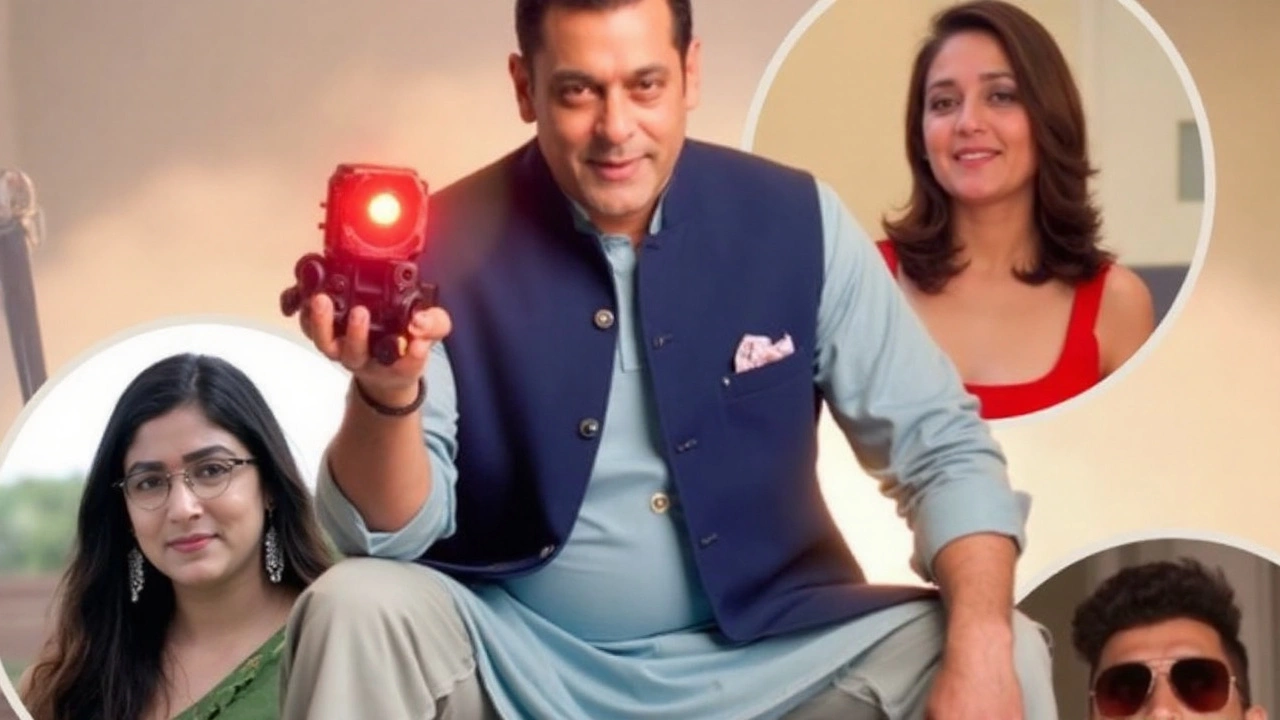Fan vote crowns a frontrunner before the season even settles
Before the first week could even calm down, Bigg Boss 19 already has a storyline: a YouTuber with a colossal fanbase walked into the house as the first confirmed contestant after a head-to-head fan vote. Mridul Tiwari, 24, beat Shehbaz Badesha in a special JioHotstar voting face-off, a move that set the tone for a season built around audience participation.
Tiwari didn’t just sneak in; he arrived with momentum. Born on March 7, 2001, in Etawah, Uttar Pradesh, he carries serious digital clout—4.5 million followers on Instagram and more than 19 million subscribers on YouTube. He graduated from Meerut University and often features his family in sketch-style videos, leaning on clean humor and everyday drama. That same style, fans say, could help him navigate alliances and soften blow-ups inside the house.
The pre-show vote wasn’t quiet either. It stirred timelines, reels, and Twitter threads, helped by the public backing of Elvish Yadav, the Bigg Boss OTT winner whose endorsement routinely mobilizes large online communities. One shout-out from a figure like Elvish can move numbers fast, and it likely did here. It also hints at a bigger shift: fandoms built on YouTube and Instagram now have as much sway in reality TV as the old TV-first fan clubs.
On the other side of the vote was Shehbaz Badesha, a performer and familiar face to Bigg Boss viewers thanks to earlier appearances in the franchise universe. His loss doesn’t say he lacks a base—it says Mridul’s digital-first audience turned up harder and faster. When platforms turn entry into a contest, the creator with the most engaged community usually wins.
Theme, early sparks, and what Mridul’s entry signals
This season’s theme, “Gharwalon Ki Sarkaar,” leans into democratic language—public power, house decisions, and visible accountability. A pre-launch vote that decided a contestant fits that pitch perfectly. Salman Khan returns as host, and the first promos already pushed the familiar mix: loud debates, strategic whispers, and the first big question—who gets targeted when nominations begin?
Tiwari barely had time to unpack before he found himself in the middle of heat. Early footage shows him trying to steer a group discussion about the first elimination, a move veteran actress Kunickaa Sadanand challenged. That’s classic Bigg Boss math: influencers are agile with engagement and attention, but film and TV veterans know how to control a room. Watching which skill set wins inside the house is half the fun.
The cast pulls from across entertainment, setting up cross-genre frictions and alliances. Among the names in the mix: Gaurav Khanna, Ashnoor Kaur, Awez Darbar, Nagma Mirajkar, Baseer Ali, Pranit More, Tanya Mittal, Zeishan Quadri, Abhishek Bajaj, Nehal Chudasama, Neelam Giri, and Amaal Malik. That diversity usually means clashing routines—early sleepers versus night owls, choreographers who want order versus actors who live for improvisation.
Here’s the strategic edge for Mridul: his brand is built on reading audiences and timing punchlines. That can translate into quick reads of house moods and when to step back versus when to push. But there’s a flip side. Bigg Boss isn’t an edited YouTube sketch. There’s no retake, no rewrite, and the 24/7 camera catches hesitation as easily as confidence. When he tried to lead early, the pushback arrived fast, suggesting he’ll have to balance visibility with restraint.
For producers, a creator-led entry is good business. Digital-first contestants come with ready-made communities, reliable trend cycles, and measurable engagement. You can track how a task lands by watching comment spikes on Shorts and Reels. And when someone like Elvish amplifies a contestant, attention multiplies. Expect the show to keep leaning into audience-driven mechanics—polls, real-time votes, and tasks that reward external hype as much as internal gameplay.
Shehbaz’s exit from the entry vote, meanwhile, leaves room for a later arc if he returns via a wildcard, which Bigg Boss has used often to restack the board. Wildcards shake up cliques, punish complacency, and give the audience a second chance to back someone they felt left too soon. If the theme is democracy, a wildcard fits the bill as the surprise election rerun.
What’s next? The real test starts with the first nomination cycle. That’s where early friendships meet strategy, and where a digital star’s online aura is stress-tested by in-house perception. Will contestants see Mridul as a relatable younger player or a threat with an army outside? The answer decides whether he’s protected by groups or isolated early.
Salman Khan’s weekend presence also matters. His questions redirect narratives and can reset how the audience reads a contestant. A nudge from him—praise for fairness or a warning about overstepping—often becomes the week’s talking point. Newcomers who listen tend to survive longer; those who double down too soon usually paint targets on their backs.
Zooming out, the season is shaping up as a test case for the reality-TV power balance in India: TV notoriety versus influencer reach. If Mridul converts his pre-show vote into long-game stability, it suggests the line between streaming celebrity and prime-time fixture is gone. If he stumbles, it will be because house politics ate virality for breakfast—something Bigg Boss has done before.
For now, Mridul Tiwari is in, the house is restless, and the phones are buzzing. The campaign that put him through the door won’t carry him week to week. That job starts inside—task by task, room by room—where punchlines, patience, and real alliances beat follower counts every time.
